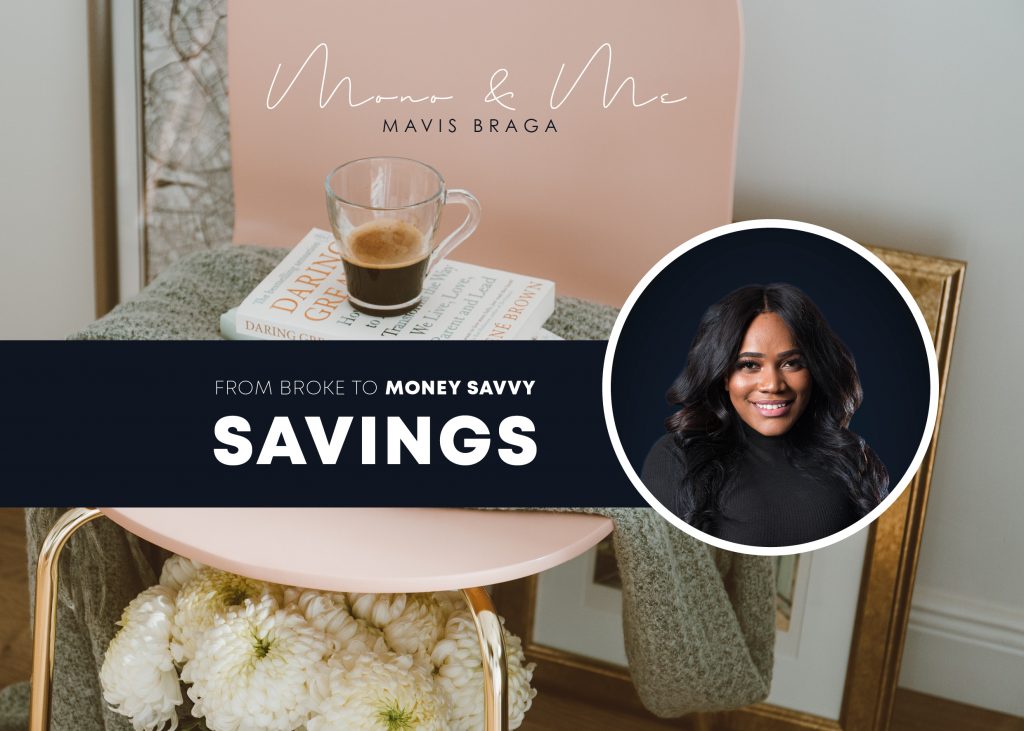Financial Literacy 103 – Savings
I was in second year when a friend of mine came to me and said to me, “Mavis I want to buy a car”.
Allow me to curate the background story and set the atmosphere shall we. I was 20 years old when I was in second year, I lived in the hostel which the government was paying for through my student loan, I had a job as a radio personality, at which I did not earn enough to even afford a real brand name perfume, and I sure as truth could not afford a car. Hear me, when I say I could not afford a car, what I mean to say is, it had never crossed my mind that me, at age 20, could even begin to fathom owning a car (I mean, unless I was a Trust Fund baby, which last I checked, I was not), never mind how one purchases a car and never mind how much cars cost.
I said, ‘WHAT? YOU WANT TO WHAT? Own a carrrrrrrr? *insert emoji of disbelief here*” Honey, a car?
This conversation became the first conversation I ever had about finances and savings. This became the day that would change my life and financial life forever. This friend of mine sat me down and explained to me how one navigates finances and how one can get to a place where you save towards what you want. It requires immense sacrifice and discipline, but it yields true reward. She explained to me that she started saving when she was 16 and had been saving by then for 4 years and had saved enough to buy a N$ 50k car. Lo and behold she bought her first car at 20 years old, and 20-year-old me was shook (this means shaken in modern day slang). I had finally seen the power of saving in the flesh and I was transformed. I wanted to learn how to save, no forget wanted, I needed to learn how to save and so it began.
Learning how to save;
- You need to determine how you’d like to save, there are various savings accounts available at various banks. You should go (Yes, physically) to your local bank and sit with a financial advisor on different types of savings accounts available. This is to ensure you fully understand which savings options you have and which yield the best returns on investment.
- You will need 3 savings options (this is easy to achieve with FNB);
- Long Term Savings – Unit Trust Account
These are savings which you will never touch, unless you are getting married, paying for your education or buying a house. This money is never to be touched; it is treated like money that you do not have. It is not to be borrowed to family or friends, it is not even available to you who it belongs to. In essence, it does not exist. This is money that is technically NOT yours.
-
- Short Term Savings – 30 Day Savings Account
This is money used to save towards assets that depreciate like clothes and a car. They too can be used to save towards your dream vacation, shopping spree or home appliances etc. Ultimately, this is where your wish list falls.
-
- Monthly expenses
I will explain how to navigate monthly expenses in the next article.
This account holds what we call spending money for Week 2, 3 and 4 of the month. I will better explain this savings strategy in the next article. This money will be used during the month, but is not in your day-to-day current account.
- Get started, open up the savings accounts. Ensure they are accessible as need be. List your savings accounts as beneficiaries to your current account to ensure easy transfer when you have to pay money into your account. Get an online banking profile, to ensure you can track your savings. Ensure you are unable to withdraw money from your 30-Day account from your current account or card. DO NOT get a card for your 30-Day savings account. Install the banking APP on your phone as you will need to do transfers between your savings pocket and current account to implement the Weeks Savings Rule (which will be explained in the next article).
Happy saving!
The idea is to ensure that in your budget which you have drafted, you account for savings like an expense. You will have a fixed amount you save in your Unit Trust, you navigate the savings structure for your 30 Day savings account in accordance to what your wish list is and how you plan to get your goals, and then your monthly spending plan which we will discuss in the next article.
TIP: Bank with FNB, as it makes this easier.
I am sure regardless which bank you bank with, you can achieve this. Get financial advise based off these principles and create your own rules as you go.
You MUST start. The key is to start somewhere.
See you next week, same place as we journey you towards becoming money savvy. You gon be alright.
With Love,
Mavis
Mavis is a Brand Ambassador for @KapiaOptics
Find Mavis on Twitter – @mavisbraga or email me – eliasmavis@gmail.com



